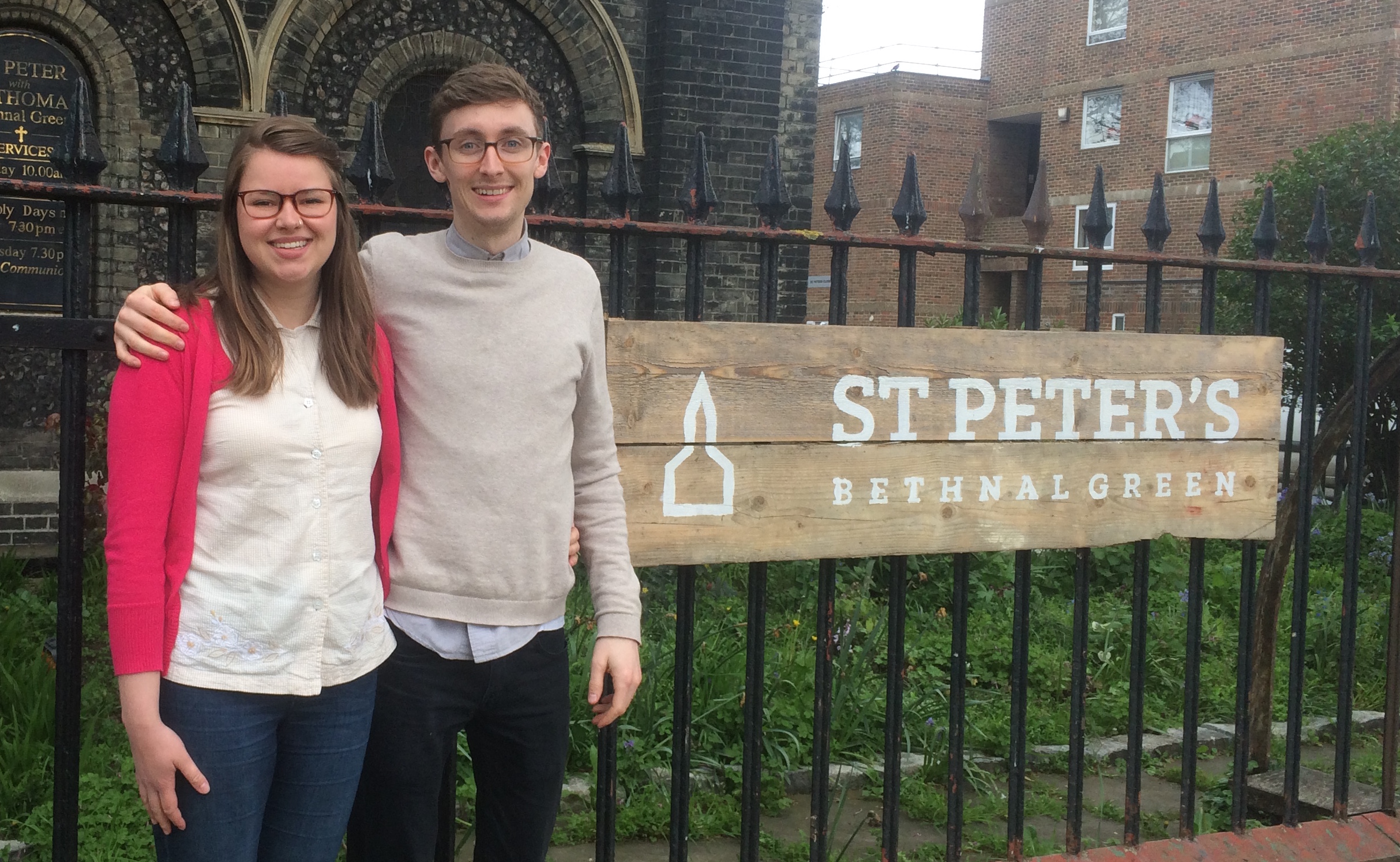Church mission workers living at the heart of London estates thanks to almost £1million of social investment
Estates in Old Street and Bethnal Green and their local church communities have been the first to benefit from missional workers living on site, following the success of a pioneering bond. The Missional Housing Bond was developed by a partnership of churches and charities to allow church workers to live among the communities they serve, in spite of the rising rents in the capital.
Three years of work on the Missional Housing Bond have resulted in two successful rounds of crowdfunding raising close to £1million of capital. This has enabled a partnership involving the Diocese of London to purchase two small flats near to Inspire London church in Old Street and St Peter’s church in Bethnal Green, both rapidly growing churches in an area of London where high levels of need and deprivation exist alongside some of the highest property values in the world.
The flats are made available at social rents to church missional workers who are not only on hand to help the life of their church, but also embed themselves in the life of the local area, helping the Church to fulfill its mission to local people.
Even though both teams are in the early stages, the work they are involved with ranges from youth football projects for Islington school children and setting up a community choir in Bethnal Green to working with the parish nurse at local school health clinics and assisting recently re-settled refugees. They also work closely to support the life and growth of the churches and hold roles with Christian charities.
Sophia Underhill, who is currently living in the flat on the Cheverell Estate near St Peter’s Bethnal Green with her husband Jamie, says:
“Being embedded here has been revolutionary for us. It is a huge blessing to be part of the community so tangibly and to be so close to St Peter’s and the people who go there. Being able to visit pastorally and help out in the community has been eye opening and amazing.”
Tom Woodbridge, who recently moved to the flat on the Stafford Cripps Estate near Inspire London with his wife Rosie, commented:
“The challenge of building community in the city across the divides of economics and demographics really inspired us. It is early days and it isn’t always easy but I can see how being here will really allow us to build relationships from the ground up as genuine neighbours.”
Diocese of London churches each have an incumbent member of clergy who lives in a vicarage near to the church. However, like the NHS and many public services in the capital, it is increasingly difficult for other church workers to afford to live in central London. The Missional Housing Bond was created to address this through social investment; offering investors a financial return alongside a good social return.
The Bishop of London, Richard Chartres, said:
“The cost of living in our capital continues to escalate at an alarming rate. Stark levels of need and deprivation find themselves juxtaposed with some of the highest property values in the world. Yet the provision of housing for front-line workers is vital if we are to continue to serve the most needy and vulnerable. Through the Missional Bond, we are embedding workers at the very heart of London’s communities where their presence is most needed, allowing us to respond creatively to our calling to share the good news of Jesus Christ in this great world city.”
The majority of investors in the bonds are individuals, many investing near the minimum level of £5,000 for 3 years or 5 years. The bonds offer up to a 2% return as well as enabling ordinary people to use their savings to make a real impact in communities in London. Christian trusts and churches have also supported the bonds.
Speaking on behalf of the London Missional Housing Bond Partners, Tim Thorlby from The Centre for Theology & Community commented:
“Social investment is an underused source of finance for the Church and its mission. We hope that this Bond will play a role in promoting a change of attitudes within churches towards the more imaginative use of resources, helping the Church to include social investment as one of its regular habits.”
There are plans to issue further bonds in the future and the team are confident that the model could work for other church communities around the country – particularly as in cities outside the capital an even greater rate of financial return could be offered. A toolkit has been produced to enable other Dioceses and churches to trial the model.


